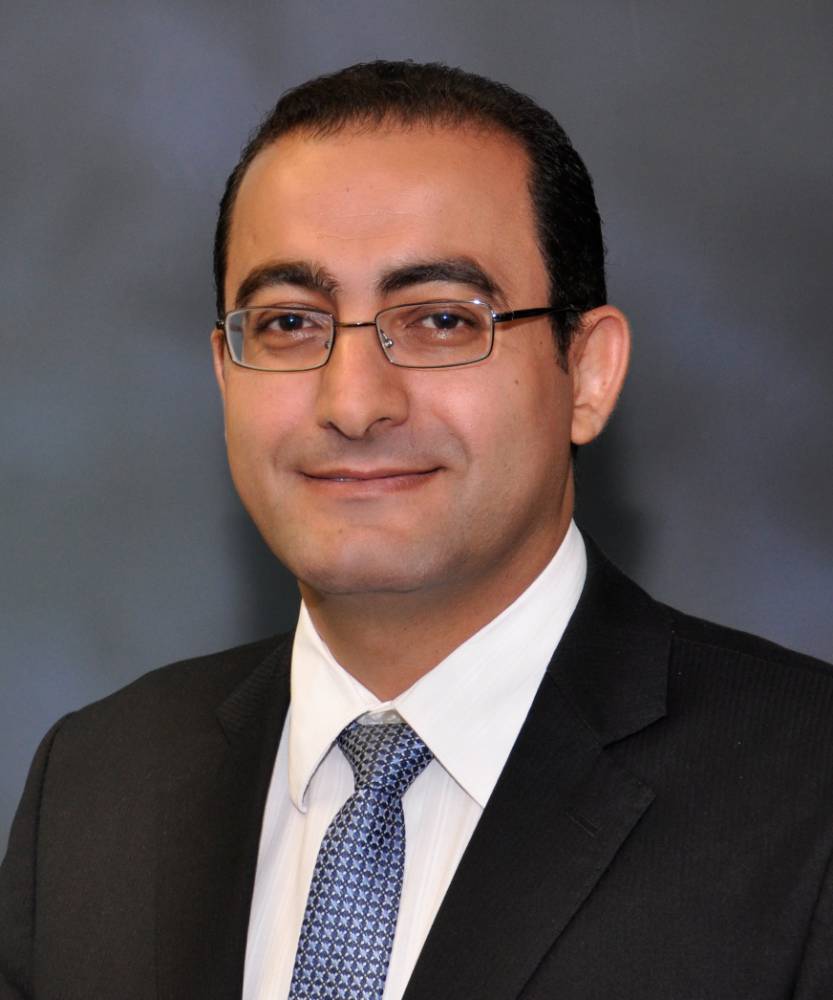
- Augusta University
- Colleges & Schools
- Medical College of Georgia
- Radiology & Imaging
- Diagnostic Radiology Residency | Radiology & Imaging
- Integrated Interventional Radiology Residency Program
Integrated Interventional Radiology Residency Program
Our Mission
Thank you for your interest in the 5-year ACGME Accredited Integrated Interventional Residency Radiology program at the Augusta University Medical Center of Medical College of Georgia. We offer one slot annually for our program.
The primary mission of our program is to provide our trainees with high-quality education and training in all aspects of Vascular and Interventional Radiology, including Interventional Oncology and Endovascular procedures. Our interventional radiology practice covers a very active inpatient and outpatient clinical service.
Our goal is to provide a unique hands-on training through a supervised academic environment to allow our trainees to master the imaging and interventional hand skills needed to excel in their future careers. We also offer research opportunities and educational activities for trainees interested in pursuing an academic track in the future.
Contact Us
Interventional Radiology– Integrated Residency
Islam Elhelf, MD, PhD
Program Director
Donald L. Smallwood, DO
Associate Program Director
Nydiah Hernandez
Program Coordinator
706-721-2076
About Our ProgramThe Vascular and Interventional Radiology Section of the Department of Radiology at the Medical College of Georgia at Augusta University, offers an ACGME-accredited Integrated Interventional Radiology Residency Program. The program provides an excellent mix of diagnostic and interventional cases. This exposes our residents to a wide variety of medical conditions and pathologies. Our well-equipped department is committed to providing quality patient care and exceptional training and research opportunities while continuing to serve as a problem-solving resource for Georgia's physicians. The IR service is currently supported by five attendings, two nurse practitioners and a highly talented team of IR nurses and technologists. Residents graduating from our program are experienced in using state-of-the-art equipment, including biplane digital angiography with cone-beam CT capabilities, digital radiology and fluoroscopy, in addition to image processing on dedicated computer workstations.
Integrated Interventional Radiology Residency ProgramThe five years ACGME-accredited Integrated Interventional Radiology Residency Program is designed for radiologists interested in acquiring expertise in all aspects of Interventional Radiology practice. This program fulfills the criteria for Membership in the Society of Interventional Radiology and well prepares the ABR-certified trainee to take the oral certifying exam in Vascular and Interventional Radiology given by the American Board of Radiology. Training is identical to the diagnostic radiology residency training for the first three years. In the fourth year (PGY-5, R-4), training concentrates on the clinical and procedural aspects of interventional radiology practice. The Integrated Interventional Radiology (IR) resident receives intense vascular and interventional radiology training under close faculty supervision with increasing autonomy based on trainee performance. The training is focused on developing proper procedural and problem-solving skills. An ICU rotation is provided to enhance the clinical skills of our trainees and to fulfil the training requirements of the integrated IR/ DR program. Most of the R-4 year is dedicated to interventional radiology rotations and the completion of any remaining requirements in order to sit for the diagnostic radiology boards. The R-5 year is a concentrated year of procedural interventional radiology with an emphasis on providing excellent longitudinal patient care. The Integrated Interventional resident is required to attend IR-specific conferences, GI tumor boards, and vascular conferences. The IR resident is also expected to prepare and actively participate in the monthly Morbidity and Mortality sectional meeting and department's Journal Club. We encourage our residents to actively participate in ongoing research activities. Our residents are expected to work on a research project suitable for presentation in the Society of Interventional Radiology meeting or equivalent IR conferences. Residents are highly encouraged to work with faculty members on submitting research manuscripts to peer-reviewed IR journals, including the Journal of Vascular and Interventional Radiology. Our program has supported residents to present at prestigious national conferences and apply for scholarships from leading IR societies like the SIR, SIO and ISET. We sponsored our residents to attend advanced training courses in particular areas of interest like interventional oncology, dialysis and endovascular interventions. We are committed to continuing this support for residents interested in academic and research activities. CurriculumOur program is carefully designed to offer an integrated clinically-oriented teaching environment incorporating a comprehensive training experience in all aspects of interventional radiology. Close resident supervision and individual instruction by five highly dedicated IR attendings allow the resident to work on a one-to-one basis with the faculty. Regular competency-based resident evaluations serve as feedback from which the residents may judge their own level of performance and rate of progress. An example of IR service coverage is shown below. This may be modified according to clinical workflow and can be geared more towards residents’ specific areas of interest during the final training year (R5). Call Schedule and BenefitsResidents participate in Diagnostic Radiology Call for R1-R4 and Interventional Call between R3-R5. Vascular and Interventional Radiology call is by beeper, tied to the Vascular and Interventional Radiology faculty call schedule. |
Interventional Faculty

- Interim Chief, Assistant Professor

- Interventional Radiology Program Director,
- Assistant Professor

Harkanwar Gill, MD
- Assistant Professor

Maaz Ghouri, MD
- Assistant Professor

- Interventional Radiology, Associate Professor